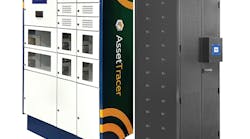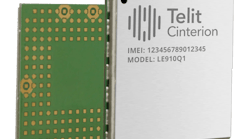In order to reduce the number of medical complications due to errors in injections, Covidien (St. Louis) has created what can arguably be called a "smart" syringe.
Utilizing radio frequency identification (RFID) with its Ultraject prefilled contrast media syringes and its Optivantage DH power advantage, the company has developed a syringe that will not shoot an injection if there is an incorrect dosage.
The company reported launching the device yesterday and discussed particulars of the product with Medical Device Daily from a makeshift conference room at this year's Association for Medical Imaging Management (AHRA; Sudbury, Massachusetts) annualmeeting in Denver.
"RFID is a fairly mature and well-known industry," Jeff Lockwood, director of marketing for imaging devices at Covidien, told MDD. "[But] RFID is new to this particular technology."
An RFID system consists of an antenna and a transceiver, which reads the radio frequency and transfers the information to a processing device, and a transponder, or tag, which is an integrated circuit containing the RF circuitry and information to be transmitted.
RFID systems can be used just about anywhere, from clothing tags to missiles to pet tags to food ? anywhere that a unique identification system is needed.
The RFID-enabled system Covidien uses creates an intelligentinterface between the contrast media syringe and the power injector that helps radiology technologists to better ensure that each patient receives the prescribed concentration and programmed dose of a contrast media-related drug during a procedure.
The interface allows the injector to physically alter the RFID label on a syringe once it is used, which can substantially reduce the probability of life-threatening air injections or air embolisms caused from using an empty, used syringe. It also helps reduce the potential for infection from cross-contamination by automatically preventing the injection of contents from a previously used RFID-labeled syringe in another patient exam.
Covidien's system also indicates if the drug in an RFID-labeled syringe is past its expiration date. "Let's say if there is an incorrect contrast in the syringe, it will not shoot the injection," Lockwood said. "It will not allow the technologists to go ahead with the procedure."
A warning also comes up in the form of a pop-up screen on the syringe and on a computer screen.
The company said the RFID tag changes after an injection is made so it's not possible for a used syringe to be reused. It automatically rejects it.
The system also automatically transfers drug and achieved exam protocol information onto a printed label for the patient record, which reduces the need for manual data entry, thereby improving efficiency and accuracy. Plans call for it to be further modified at some point to allow for data transfer directly to electronic medical records.
The company first received FDA clearance on Ultraject last spring and received approval of Optivantage in May (MDD, May 12, 2008).
"Before we launched the device we wanted to make sure that all of the components first had approval. So far feedback has been very, very positive and we're going to be showing the device here at the AHRA," Lockwood said.
Covidien has been providing prefilled syringes for contrast imaging for a number of years, reducing the risk of medication-dispensing and mislabeling errors that may occur when clinicians manually fill syringes from bulk packaging.
The company said RFID-labeled syringes strengthen its ability to help radiology facilities address Joint Commission and U.S. Pharmacopoeia 797 standards, which are aimed at ensuring compliance with labeling and unit-dose requirements, as well as the use of aseptic techniques.
"Covidien's new, innovative system has the potential to help reduce medical errors and increase efficiency in CT imaging," said Steve Hanley, president, imaging solutions at Covidien. "We expect this technology to be the platform for future innovation."
Covidien manufactures, distributes and services a diverse range of industry-leading product lines in four segments: Medical Devices, Imaging Solutions, Pharmaceutical Products and Medical Supplies. With 2007 revenues of nearly $9 billion, Covidien has roughly 42,000 employees in 57 countries, and its products are sold in more than 130 countries.
SOURCE-Medical Device Daily

